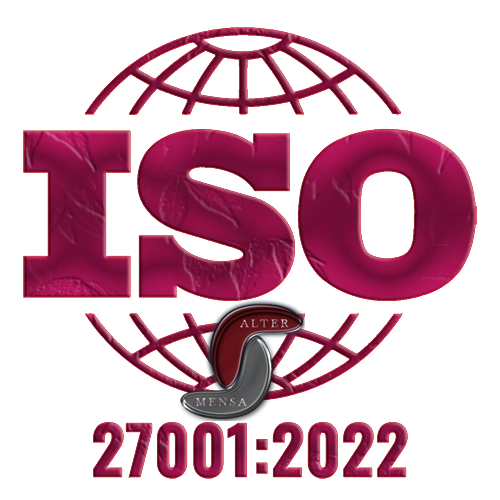
The ISO 27001 standard is an international standard for information security management. However, it defines an information security management system (ISMS) to be implemented in the company. Likewise, the ISMS is the organization (processes, responsibilities, actions, etc.) that the company must put in place to improve information security.
This standard presents the requirements in terms of organization (management system). It ensures that information security is well controlled:
The company can therefore obtain ISO 27001 certification issued by an independent organization. Furthermore, it therefore certifies the compliance of the company's ISMS.
The ISO 27001 standard is a text which aims for control, security and services through the mastery of 4 areas.
Ensure the availability of information and services.
Secure the integrity of critical data.
Guarantee the confidentiality of sensitive data or customer data.
Ensure the availability and compliance of legal and other evidence.
ISO 27001 is a standard for the entire company and not just for information systems. This standard potentially concerns any company. Likewise, ISO 27001 certification corresponds to a desire to raise its level of quality of service through security. Depending on its customers and its competitive context, the company has more or less interest in implementing this standard in order to go as far as certification. Consequently, the more sensitive and critical the service, the more this certification will be of interest.
To obtain ISO 27001 certification, you must meet the requirements of the ISO 27001 standard in addition to integrating the operational controls of the ISO 27002 standard.

ISO/IEC 27002 is an International Standard that provides guidance for organizations seeking to establish, implement, and improve a cybersecurity-focused information security management system (ISMS). While ISO/IEC 27001 outlines the requirements for an ISMS, ISO/IEC 27002 establishes best practices and control objectives related to key aspects of cybersecurity, including access control, cryptography, human resource security, and incident response. This standard provides a practical reference model for organizations seeking to effectively protect their data from cyber threats. Businesses that implement the guidelines in ISO/IEC 27002 can take a proactive approach to cybersecurity risk management and protect critical data from unauthorized access and the risk of data loss.
The rapidly evolving digital landscape has opened up unprecedented opportunities for businesses, but it has also introduced a myriad of vulnerabilities and threats. In this context, ISO/IEC 27002 is an essential tool that helps organizations navigate the complex web of information security challenges. It provides businesses with a proven framework of best practices to not only protect their sensitive data but also strengthen the trust of their stakeholders, customers, and partners. Implementing the controls and guidelines in ISO/IEC 27002 is based on a proactive approach to information security, helping to minimize the risks of data breaches, unauthorized access, and potential financial and reputational damage.